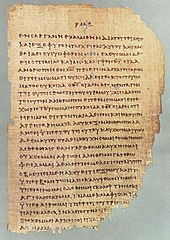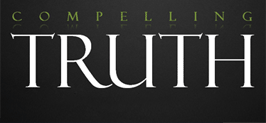Downloadredball. Cyril (born about A.D. 315) - 'Read the divine Scriptures - namely, the 22 books of the Old Testament which the 72 interpreters translated' (the Septuagint) The apocrypha wasn't included at first in the Septuagint, but was appended by the Alexandrian Jews, and was not listed in any of the catalogues of the inspired books till the 4th century. The Maccabee books are also excluded from the Jewish Bible. The story of Hanukah actually comes from the Talmud, not the Bible. The Book of Maccabees does not have the story of the Miracle of the Lights. Member of the family dianne lake. The Book of Maccabees (BoM) is rather diffe. THE OLD GREEK BOOK OF BEL AND THE DRAGON: WHICH IS ALSO CALLED THE PROPHECY OF HABAKKUK JEROME'S PROLOGUE TO THE CANONICAL EPISTLES and More Latin Vulgate Apocrypha Books of Maccabees part 1 Books of Maccabees part 2 Books of Maccabees part 3 New Testament Apocrypha I New Testament Apocrypha II. Books of Maccabees part 3 - REJECTED SCRIPTURES These are the first 19 Chapters to 5 Maccabees, and the Epistle in the 22nd chapter. We will not print the complete text because 5 Maccabees 19 clearly states: 'Here ends the history as given in the two books usually attached to our Bibles.' THE FIRST BOOK OF MACCABEES. The name Maccabee, probably meaning 'hammer,' is actually applied in the Books of Maccabees to only one man, Judas, third son of the priest Mattathias and first leader of the revolt against the Seleucid kings who persecuted the Jews (1 Mc 2:4, 66; 2 Mc 8:5, 16; 10:1, 16).Traditionally the name has come to be extended to the brothers of Judas, his supporters.
There are five books of the Maccabees. First and Second Maccabees are part of the deuterocanonical books used by the Roman Catholic Church, Orthodox Church, and Anglican Church. The creators of the Septuagint, an early Greek translation of the Old Testament created about 200 to 300 years before Jesus, called 1 and 2 Maccabees 'useful writings' but not inspired Scripture.
The book of 4 Maccabees is more philosophical rather than historical. In it, the idea that pious reason trumps passion is illustrated by the martyrdom of Eleazer and the Maccabean youths under Antiochus IV Epiphanes. Church historian Eusebius named Jewish historian Josephus as the author, but critics have since disputed that claim. Most agree 4 Maccabees was written prior to AD 70. It is listed as canon in the Georgian Orthodox Bible.

The other Maccabees, 5 Maccabees, is also known as the Arabic 2 Maccabees, and was written much later.


In 3 Maccabees, the story of Jewish persecution under Ptolemy IV Philopator (222—205 BC) is told. It was probably written between 100 BC and AD 30, though the date of writing and author are uncertain. Contrary to its title, it does not describe the actions of the Maccabees. It is considered canon in the Armenian Bible.
The book of 4 Maccabees is more philosophical rather than historical. In it, the idea that pious reason trumps passion is illustrated by the martyrdom of Eleazer and the Maccabean youths under Antiochus IV Epiphanes. Church historian Eusebius named Jewish historian Josephus as the author, but critics have since disputed that claim. Most agree 4 Maccabees was written prior to AD 70. It is listed as canon in the Georgian Orthodox Bible.
The other Maccabees, 5 Maccabees, is also known as the Arabic 2 Maccabees, and was written much later.
Most Protestant churches and denominations do not consider any of the five Maccabees books to be canon, or part of the inspired Word of God. They hold historical interest, but are not authoritative regarding matters of spirituality.
